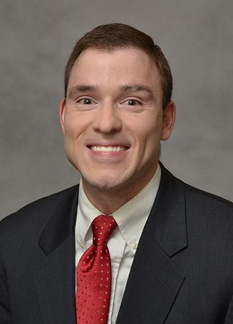by Bob Bechtol, M.S.
Oftentimes, we think of leaders as heroes with noble causes; however, many remain in day-to-day activities as common people striving to improve organizations and activities. The Accreditation Council on Pharmacy Education (ACPE) recognized a need and called for colleges and schools to foster leadership development so “graduates are able to demonstrate responsibility for creating and achieving shared goals, regardless of position” in standard 4.2 of the ACPE guidelines, and “to provide an environment and culture that demonstrates a commitment to fostering leadership and developing professionalism in students throughout the curriculum” in standard 9.1.1 In recent years, academicians have discussed leadership development competencies in pharmacy education and consulted expert opinions on the importance of leadership development in the profession.2 Non-managerial pharmacists have expressed leadership to be one of the top ten characteristics they value when working with students.3One innovative and improved strategy to assess leadership is to simulate tasks when training students, but little is really known about these tasks. I could find no evidence that has been systematically collected on the real-world tasks and responsibilities expected of new, entry-level practitioners in leadership roles. Likewise, I could find no information on how they can be assessed.
Identifying and Assessing Authentic Pharmacy Leadership Tasks
To better understand how to train students with authentic leadership learning experiences, research is needed. Organizations need employees with leadership attributes and skills no matter their position or title and this development should stem from actual real-world scenarios that may or may not be found in textbooks. Examples of these scenarios might include:
- Developing a shared vision for a new pharmacy service.
- Recognizing important elements of an organization’s culture when selecting strategies to facilitate change.
- Determining each team member’s unique talents and working to align those talents with the work at hand.
I believe a couple different ways to investigate these types of tasks and scenarios would be to:
- Conduct personal or focus group interviews with pharmacy leaders in various types of pharmacy organizations and settings to garner their perspective on what is expected of new practitioners in leadership roles.
- Observe pharmacy leaders in their day-to-day activities, such as when they attend meetings, make personnel decisions, and make important decisions about pharmacy services. Create detailed notes on their leadership tasks and responsibilities and analyze how they handle them.
With the evolution and complexity of healthcare, the pharmacy profession needs leaders to transform and guide it. By gaining an understanding of the leadership tasks of entry-level practitioners, pharmacy educators can provide students with learning experiences in school that are applicable to practice and help meet the desired outcomes of future employers. In addition, pharmacy assessment professionals can help design assessments that ensure students can perform these leadership tasks.
To the leaders in academic pharmacy, I ask “How can we better prepare students for the leadership work of the new practitioner?” As educators, we should be asking ourselves “How can we use authentic leadership tasks inside and outside the classroom?” As researchers, we should be developing study designs and methods to investigate these types of tasks and their use in leadership assessment. I challenge and encourage academic pharmacy leaders, educators, and researchers to think about these questions for the betterment of leadership assessment.
Additional resources for leadership development in pharmacy education
Deliberate integration of student leadership development in Doctor of Pharmacy programs. This article discusses integrating student leadership development (SLD) vertically and horizontally within the curriculum in a deliberate and longitudinal manner. On pages 10 and 11, various potential SLD assessment approaches are discussed, such as commercially available self and observer assessment instruments, assessment of student self-assessments while attending pharmacy school, and obtaining assessment post-graduation from graduates, employers, residency directors, and colleagues.
Building a sustainable system of leadership development for pharmacy: Report of the 2008-09 Argus Commission. The article is an early milestone report about the importance of leadership development in pharmacy education. To examine how pharmacy programs are working to create agents of change for pharmacy and society.
AACP Leadership Development Special Interest Group. It’s an integral special interest group whose mission is to support the development of leaders in all facets of the pharmacy profession. The Leadership Development SIG facilitates the exchange of ideas and resources that prepare and advance students, practitioners and faculty to be leaders and change agents in responding to challenges and opportunities in health care delivery, education, and practice-based research.
REFERENCES
1. Accreditation Council for Pharmacy Education. Accreditation standards and key elements for the professional program in pharmacy leading to the doctor of pharmacy degree. 2015. https://www.acpe-accredit.org/pdf/Standards2016FINAL.pdf. Accessed July 3, 2017.
2. Janke KK, Traynor AP, Boyle CJ. Competencies for student leadership development in doctor of pharmacy curricula to assist curriculum committees and leadership instructors. Am J Pharm Educ. 2013; 77(10): Article 222.
3. Thompson DC, Nuffer W, Brown K. Characteristics valued by the pharmacy practice community when hiring a recently graduated pharmacist. Am J Pharm Educ. 2012; 76(9): Article 170.

Robert Bechtol received his Masters of Science in Pharmaceutical Sciences at The University of Toledo College of Pharmacy and Pharmaceutical Sciences. He is currently a Ph.D. Student in Social and Administrative Pharmacy at the University of Minnesota College of Pharmacy and an affiliate member of the Wulling Center for Innovation and Scholarship in Pharmacy Education. His education-related scholarship interests include: the scholarship of teaching and learning, program evaluation, and faculty development. In his free time, he enjoys going to the movies, playing basketball and softball, and playing board and card games.
Pulses is a scholarly blog supported by a team of pharmacy education scholars.

1 Comment